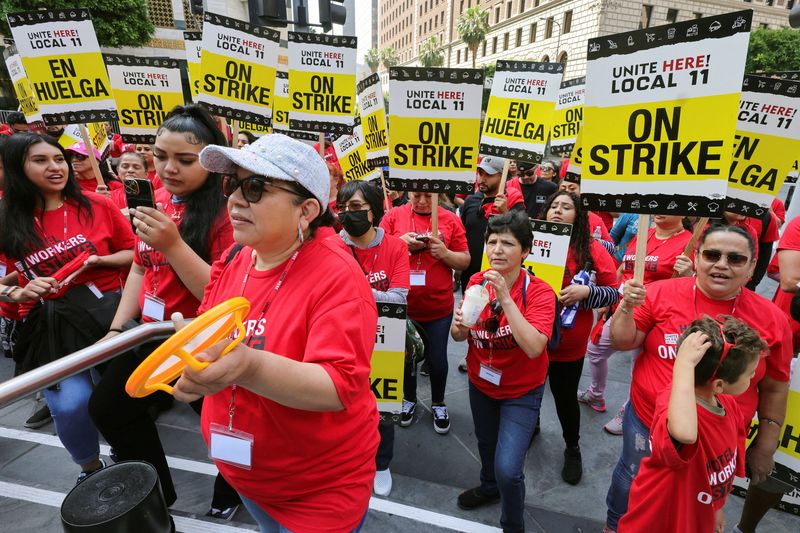
The recent strike by approximately 10,000 hotel workers across various U.S. cities marks a significant labor dispute in the hospitality industry. The strike, organized by the Unite Here union, began after contract negotiations with major hotel chains like Marriott, Hilton, and Hyatt broke down. Workers from key cities such as San Francisco, Honolulu, and Boston, among others, walked off the job during the busy Labor Day weekend, demanding higher wages and better staffing levels.
The primary issues at the heart of the dispute are the lingering effects of the COVID-19 pandemic, which led to widespread job cuts and reduced services in many hotels. Workers argue that despite the industry’s recovery and rising profits, their wages have not kept pace with inflation, and staffing levels remain below pre-pandemic levels. This has resulted in increased workloads, with some workers reporting that they are being asked to provide five-star service with significantly reduced staff, leading to burnout and decreased service quality.
The union is also pushing for the restoration of daily room cleaning services, which were cut during the pandemic and have not been fully reinstated, further exacerbating the workload for housekeeping staff. In some cities, workers are seeking substantial wage increases—for example, housekeepers in Baltimore are demanding a raise from $16.20 to $20 per hour.
The strike highlights broader frustrations in the hospitality industry, where workers feel left behind despite the industry’s financial rebound. The American Hotel and Lodging Association has noted that while wages have increased by an average of 26% since the pandemic, the industry is still grappling with staffing shortages, particularly in housekeeping.
As the strike continues, it underscores the ongoing tensions between labor and management in an industry still adjusting to post-pandemic realities.





